You are viewing a clip of this video, click to Join. Members, click to Log in.
|
|
||||
When you sign up for Storylogue, you will also enjoy:
Can you explain the core event and the core emotion in the epic?
Aug 24, 2014
What is the purpose of jumping back and forth between multiple storylines within a feature film or TV episode?
Aug 17, 2014
What characterizes a sado-masochistic relationship?
Aug 16, 2014
Do you have any tips for writing a treatment that really sells?
Aug 10, 2014
How does writing an episode for a procedural crime show differ from writing a feature film thriller?
Jul 31, 2014
What's the best way to pitch a new story for television? Should I prepare a full script?
Jul 29, 2014
Do I have to be able to tell a story well verbally in order to be a good storyteller in my writing?
Jul 28, 2014
 Now Playing
Now Playing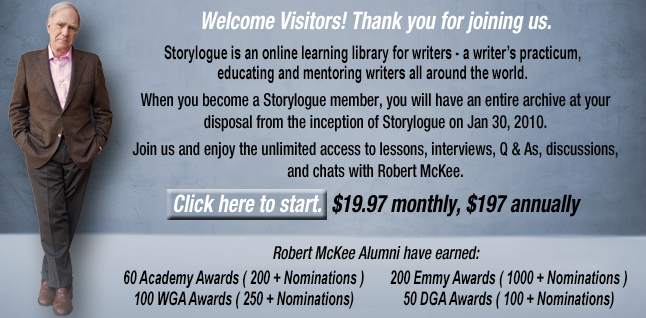
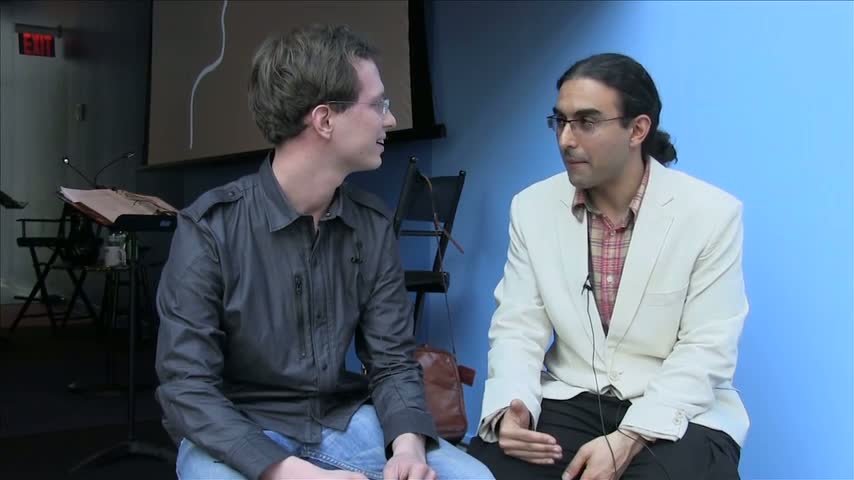
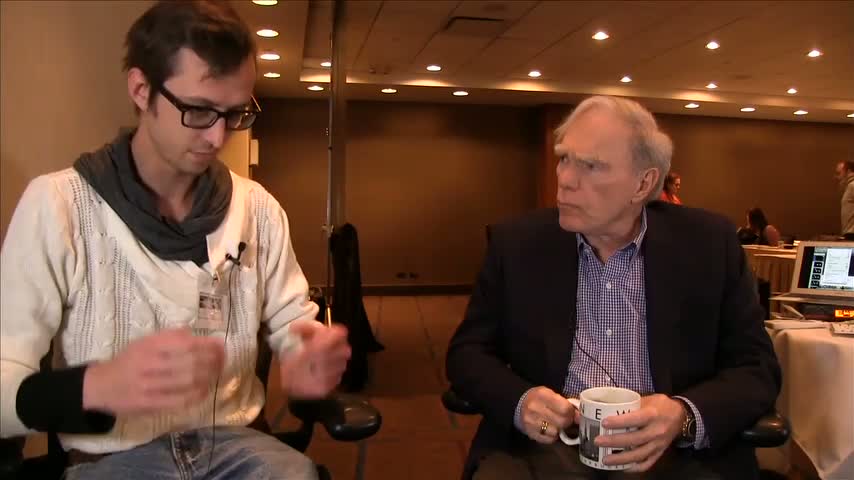
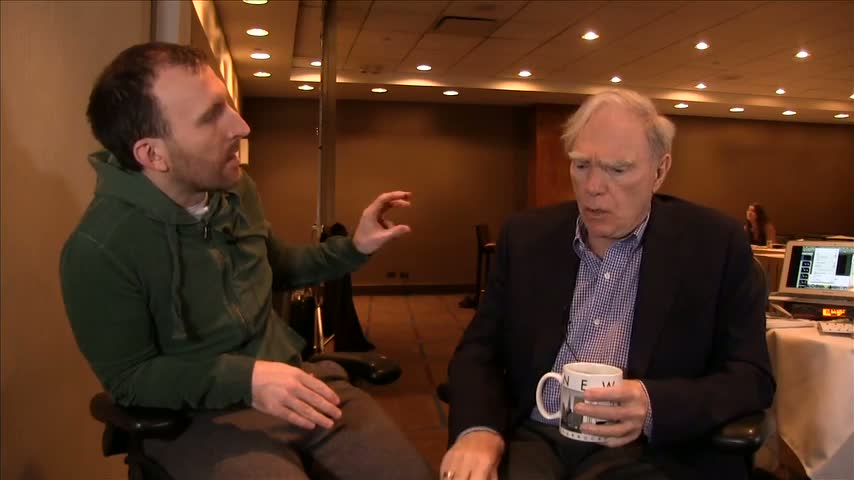
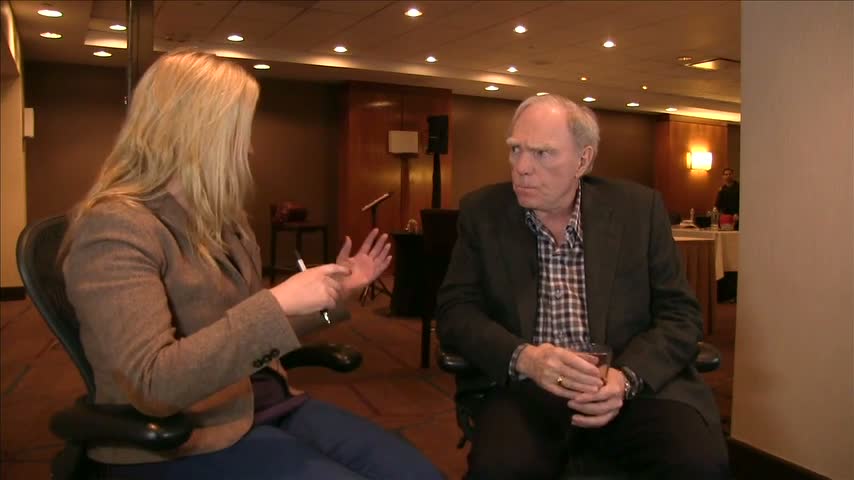
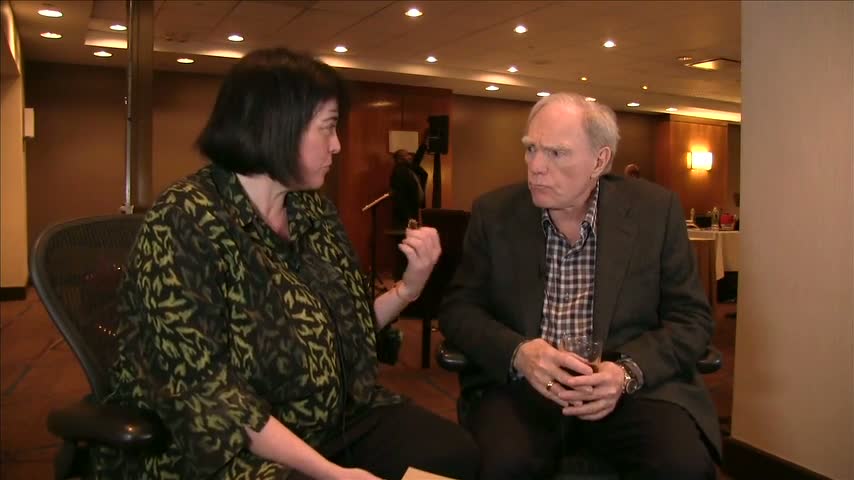
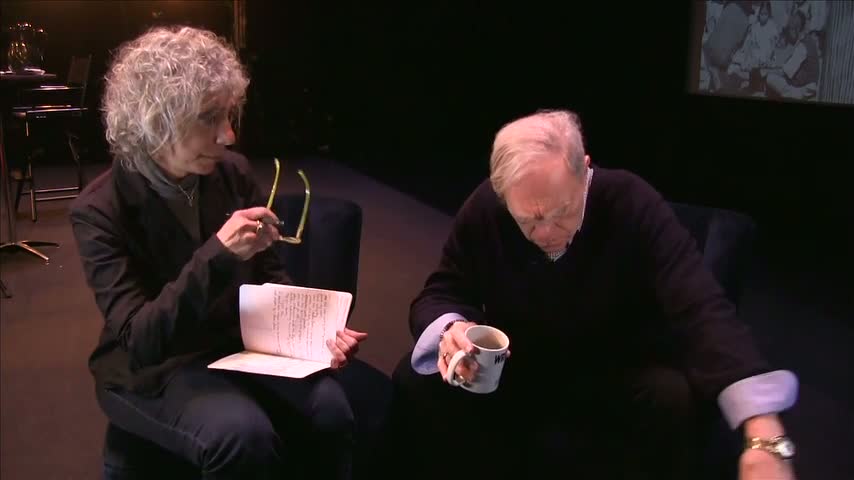
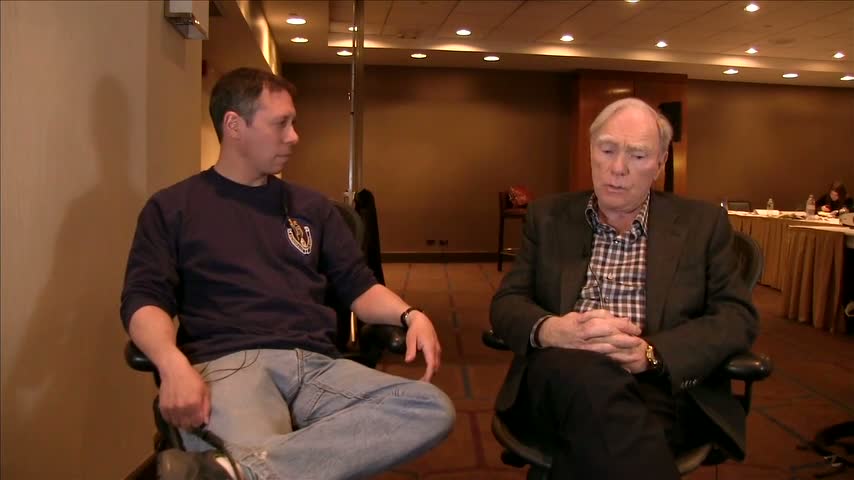
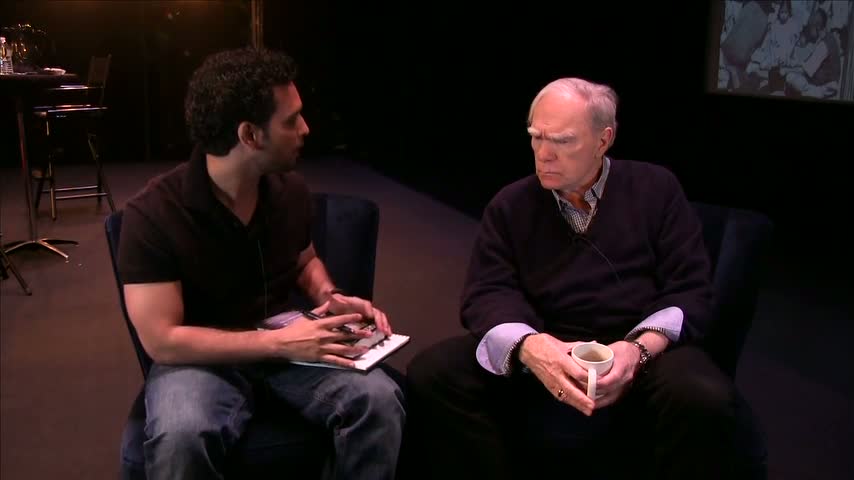
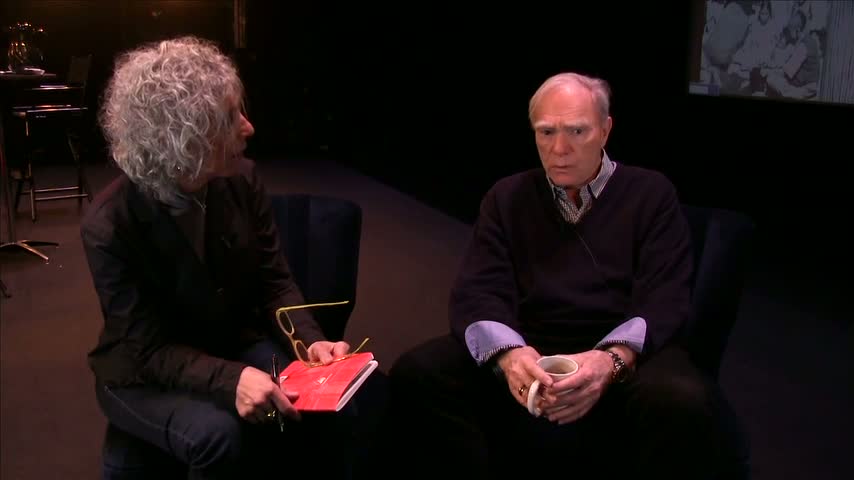
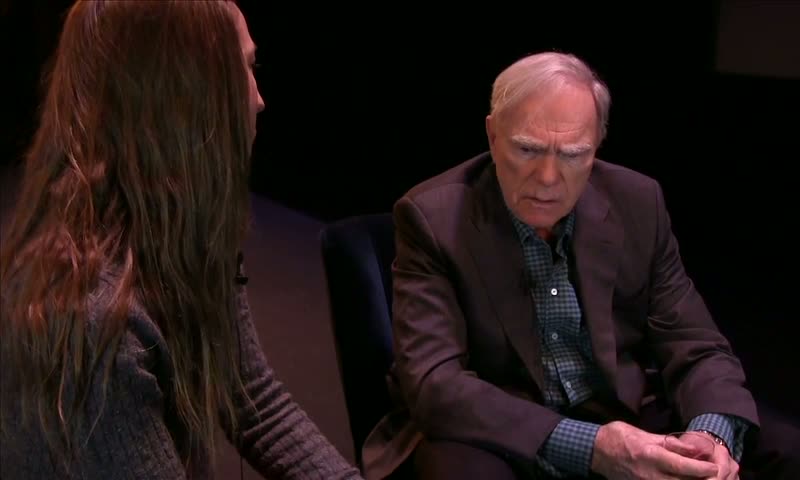
 Requires
Requires
Another example of antagonism in education plots, my favourite, GROUNDHOG DAY. Phil Connors (Bill Murray) begins as someone who just hates life. He hates everybody, and unconsciously, he hates himself. He complains, obliquely, that he's a nobody and when he meets his beautiful new producer Rita (Andie McDowell) he immediately falls in love with her. But he can't admit it to himself because, fundamentally, he knows he's unworthy, and he sets about belittling her and talking himself up. He wants to jump networks and stop doing the Groundhog Day Festival because he believes it's tanking his career. And so the opening sequence has conflict on all the levels of life; he has tremendous inner conflict as he hates himself, he has personal conflict in his love with Rita, and he has extra-personal conflict in his career and the city of Punxatawney which he (of course) hates. All of this exposed by his meeting with Rita who creates conflict on all those levels by her appearance.
Then he gets trapped in the repeating time loop of Groundhog Day and relives the same day again and again. And this is such a vast external force of antagonism, essentially God is the antagonist.
The brilliant design of GROUNDHOG DAY is that in education plots the character has an unconscious desire, a need, and since that is the spine of action the conscious desire shifts. And GROUNDHOG DAY traps Phil Connors in a world where his conscious desires are repeatedly exhausted until he's forced to accept his unconscious desire; to be a better person.
So there's a huge variety of antagonism levied against Phil, changing with his conscious desires: He starts off trying to pursue a career by escaping Punxatawney, but he's caught in repeating time by a blizzard and thus, can never have a career. He assumes he must be insane or severely ill, so he sees doctors and psychiatrists, but they're no help because he's not ill or insane. He then indulges in vices; gluttony, stealing, lustful sex, but the unchanging eternity he's trapped in soon exposes the hollow futility of those pursuits. He pursues Rita, but cannot find true romantic love in 24 hours no matter how much he manipulates his world, and so love is denied him. Eventually, he's so sick of his pointless existence, he kills himself. Repeatedly. But even that loses its appeal and he sees himself for who he is; a self-hating narcissist. Finally, he decides to change himself into a better person. First he tries to save a homeless man from dying, but no matter what he does, the man dies every time. So he focuses on the little things; He learns to play the piano, and ice-sculpt. He starts actually *talking* to people with sincere interest. He solves little tiffs. He saves who he can. And he does this for eternity, with no reward except for his own contentment. At which point, he's allowed out of the time loop and Rita is in love with who he's become. The design forces Phil Connors to give up every conscious material desire until he can no longer deny his need to be a better human being.